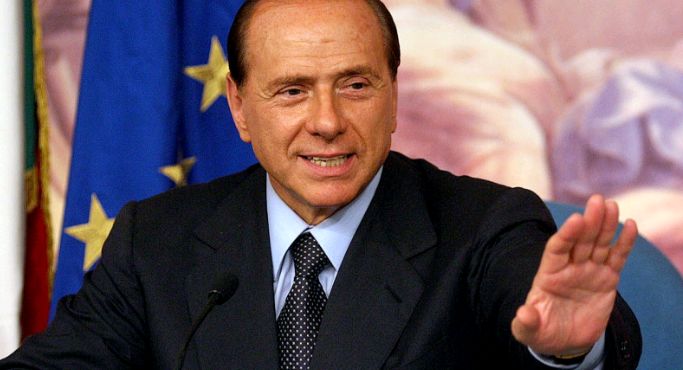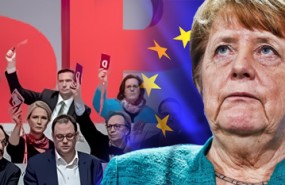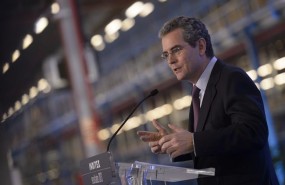- In Italy, Silvio Berlusconi is back while in Germany the results of the vote will be a 'yes'
- Throughout the week there will be inflation data being published and Mario Draghi or Jerome Powell will give a speech

The Ibex 35 has risen a 0.81% up to 9,902.04 points, in a week with political dates on the horizon. On Sunday the long awaited Italian elections will take place and on the same day the SPD in Germany will vote on their approval of Merkel’s coalition government. Two very important dates and although there are no unsuspected results predicted, we will have to wait and see what happens.
- 11.435,700
- -0,28%
On the business level, the investors have followed Inditex closely (+1.6%) after the Friday plummet. The textile company has anticipated the analysts that say the results it presents on March 14 will disappoint and many have downgraded their rating. The latest one in doing so has been UBS, from 35 euros to 33.
Aside from Inditex, the highest rises have been Grifols (+2.2%), IAG (+2.1%) and Acerinox (+2%). Among the big values, Aena has risen 1.4%, followed by Amadeus (+1%) after a rating increase from Deutsche Bank, Iberdrola (+0.9%), Santander (+0.87%), Telefónica (+0.85%), Repsol (+0.7%) and BBVA (+0.4%).
In red, a few values. Indra has been the lowest faller with falls of 2% right before publishing its results on Tuesday. Followed by DIA (1.7%) Mediaset España (-0.6%) and Merlin Properties (-0.5%).
In the main board, Duro Felguera (+11%) has been the most profitable value, followed by Solaria (+8%). In negative the losses of Tubos Reunidos (-4%) and Prosegur Cash (-2.6%).
In the currency market, the euro rises in value a 0.13% up to 1.2314 dollars. As for commodities, the Brent petrol rises a 0.37% up to 67.56 dollars, while gold is at 0.3% up to 1.334 dollars. In the public debt market, the Spanish 10 year bond’s profitability relaxes to 1.56% from 1.59%.
GERMANY AND ITALY
In Italy, everything points towards the return of Silvio Berlusconi, which, paradoxically, is considered the best possible option facing the fear of the radical anti european party taking charge, something that is very unlikely after the new electoral law passed in Italy at the end of 2017.
As for Germany, it’s expected that the vote will be in favour of the coalition government. If it were to be different, Germany will face an uncertain political future that would mean a Merkel minority government or new elections.
Whatever happens in Italy or Germany there is no doubt that it will have an impact on the markets. The analysts give politics a limited power regarding their impact on the stocks. In a moment where the central banks control everything, what happens in politics isn’t feared as much as last year.
Craig Erlam expert of Oanda, points out that this week all the eyes will be on the inflation data (the Eurozone on Wednesday and the speeches of the central banks, like Mario Draghi's address to the European Parliament this afternoon. The president of the ECB has said on Monday that the EuroZone grows robustly and at a stronger expansion rate than expected thanks to measures from the central bank.
“Looking towards the future, we anticipate that the inflation will pick up it’s rises supported by our monetary policy measures”, points out Draghi.
“Draghi will be followed this Monday while on Friday it’s Carney’s turn (...). Also, everyone will be watching the new president of the Fed this week, Jerome Powell, that will address the Chamber’s Financial Services Committee on Tuesday and the Senate’s Banking Committee on Thursday while he details his plans for the rate rises this year”, points out Erlam.




